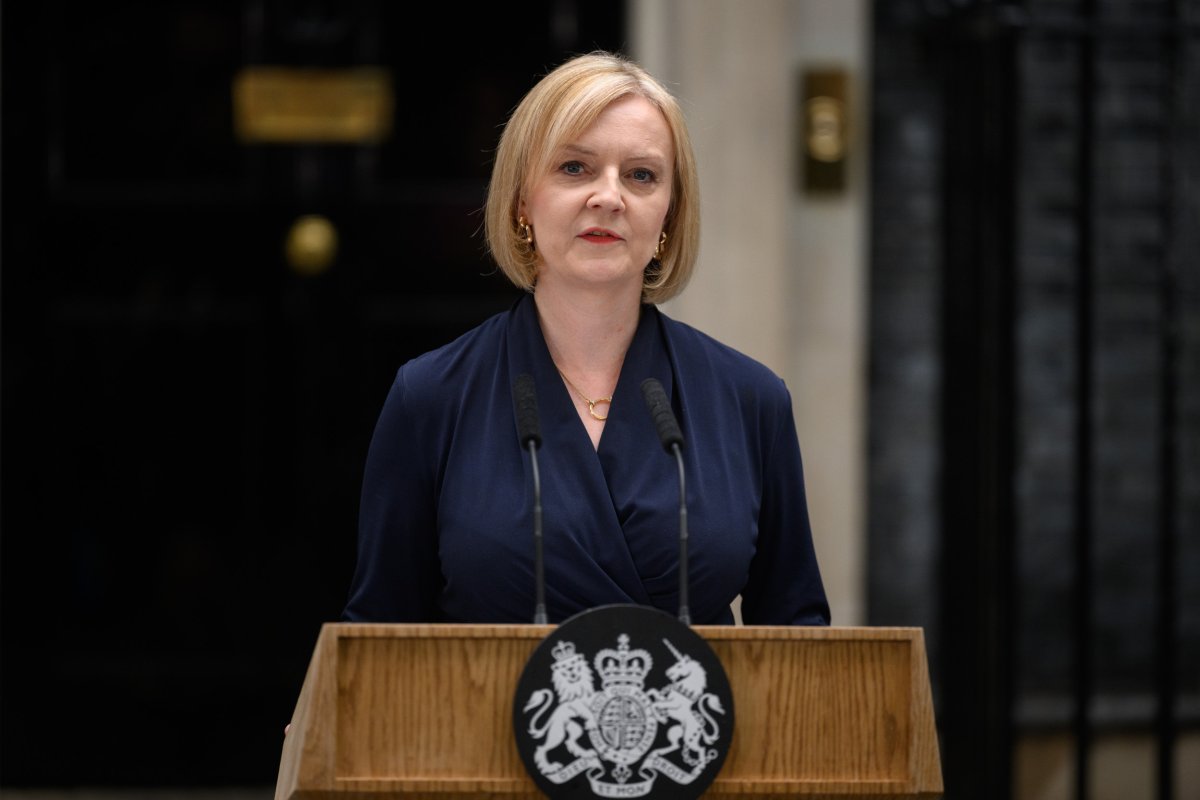"She's too marmite," goes a popular British take on the United Kingdom's new prime minister, Liz Truss, who assumed office earlier this week. To compare a person to her country's unique and description-defying savory spread, which one either loves or hates, is to say that individual is "divisive."
"Divisive" is probably the last thing Britain needs these days. Truss' predecessor, Boris Johnson, was done in by a hasty coup within the ranks of his governing Conservative Party over a COVID-era cocktail party, for which he was fined, and a series of relatively minor scandals that further shook confidence in his leadership. In the months since Johnson's ouster, Britain has suffered its highest crime rate in 20 years, its highest inflation rate in 40 years, and its heaviest income tax burden in 70 years. The pound has fallen close to parity with the dollar, its lowest relative value since 1985. Government caps on energy prices that are due to expire on October 1 threaten an 80% cost increase overnight, following a 57% increase earlier this year. Tens of thousands of small businesses may not survive, and millions of ordinary Britons sit precariously on the financial edge. Major public-sector and service-industry unions either are, or likely soon will be, on strike. And, in what may be an especially bad omen, Queen Elizabeth II, a living symbol of stability and national unity for generations, died just two days after asking Truss to form her government.
Truss "will inherit a list of problems as big as any facing the incoming Clement Attlee or Margaret Thatcher," Sir Alan Collins, a retired British ambassador, wrote me, comparing her to predecessors who came to power in difficult circumstances in 1945 and 1979, respectively. There is, Sir Alan added, "a lot to watch out for, therefore, in the coming days and weeks as she grapples with them."
Truss is entering office as Britain's third prime minister in three years, with a credibility gap that may well be unprecedented in modern British history. Her party, which won a resounding general election victory less than three years ago, now runs 10 points behind the opposition Labour Party, which trounced the Conservatives in local elections in May and has since won a bellwether parliamentary seat vacated by a Conservative who had resigned.
The Tory leadership contest to replace Johnson quickly turned vicious and bloodied all contenders. The two finalists, Truss and former Chancellor of the Exchequer Rishi Sunak, spent two record-hot summer months savaging each other and, inter alia, their party's recent performance, as they jousted for Britain's top job. Their rivalry was so intense, and the prospects of new leadership so dim, that some polls indicated Johnson would have been restored to the premiership if he had been on the ballot. Weakening Truss further, under Britain's system for replacing prime ministers who resign outside of election cycles, she rose to office with no popular mandate, but on the votes of fewer than 200,000 people—the majority of dues-paying Conservative Party members who chose her to succeed Johnson as party leader.

Only about one-third of Truss' fellow Conservative members of Parliament supported her candidacy when it began, and her new cabinet is heavily drawn from the party's right wing, who form a core of loyalists rather than the united front that the Conservatives would likely need to prevail in the next general election, which must be held by late 2024. Some 50% of Britons expect things will worsen under Truss' leadership, while many Conservative Party members who voted for her over Sunak seem to have favored her because she reminded them of Johnson, his defiant populist attitude, and his better-remembered policies, even if she lacks his charisma and humor.
The new prime minister has a history of political shapeshifting that has caused many to doubt her convictions at a time when her party and country are badly in need of principled leadership. She started political life as a member of the U.K.'s center-left Liberal Democrat Party and once publicly called for the abolition of the monarchy. She now dismisses her earlier stance as a youthful indiscretion, and advocates a nationalist course prioritizing free enterprise, anti-woke social policies, and Thatcherite economics. Truss also opposed Brexit, Britain's highly contested withdrawal from the European Union, until as recently as 2016, but quickly became an outspoken convert to the cause. Colleagues from past dealings interviewed in the media have recalled her as opportunistic, difficult to work with, and uncompromising even in the face of strong evidence contradicting her positions. With classic British understatement, she recently confessed when asked that one of her character flaws is a tendency to be "a bit relentless."
Truss has announced an agenda to cut taxes while also increasing government spending, perhaps by as much as $100 billion or more, to ameliorate Britain's looming energy crisis. She blames that crisis entirely on Vladimir Putin's invasion of Ukraine, even though her predecessor's ill-advised commitment to an ambitious and exorbitantly expensive green energy policy is also a clear factor. Specifics are elusive, but the Bank of England forecasts inflation rising to 13% by year's end. With a two-year clock counting down to the deadline for the U.K.'s next general election, Truss has much to do and little time in which to do it. Whether she can succeed is anyone's guess, but for just about anyone, turning around the world's worst-performing major economy will take a miracle.
Paul du Quenoy is president of the Palm Beach Freedom Institute.
The views expressed in this article are the writer's own.
Uncommon Knowledge
Newsweek is committed to challenging conventional wisdom and finding connections in the search for common ground.
Newsweek is committed to challenging conventional wisdom and finding connections in the search for common ground.
About the writer
To read how Newsweek uses AI as a newsroom tool, Click here.








